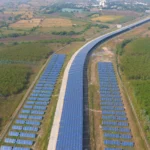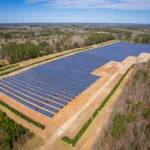Saudi Aramco is once again exploring investment opportunities in India’s growing energy sector, reigniting its interest in partnering with leading public-sector refiners Bharat Petroleum Corporation Ltd (BPCL) and Oil and Natural Gas Corporation (ONGC). The renewed interest follows India’s ambitious refinery expansion goals, as reported by S&P Global Commodity Insights.
India, the world’s third-largest oil consumer, plans to increase its refining capacity from 258.1 million metric tonnes (mt) to 309.5 million mt by 2028. S&P Global estimates that India will need an additional 400,000 barrels per day (bpd) of refining capacity by the early 2030s to meet rising energy demand.
Despite earlier setbacks — including the stalled Ratnagiri Refinery project and the shelved $15 billion investment deal with Reliance Industries’ oil-to-chemicals division — Aramco remains bullish on India’s long-term potential as a strategic crude and petrochemicals market. The company was India’s third-largest crude oil supplier in 2024, delivering approximately 625,000 bpd.
“Any interest from Aramco in BPCL and ONGC refineries will align with this strategic direction. If they secure partnerships in any of these new refineries, Aramco can not only ensure a steady supply of its crude but also gain a substantial share of refinery output for sale in the Indian retail market,” said Abhishek Ranjan, South Asia oil research lead at S&P Global Commodity Insights.
India’s refinery expansion roadmap includes upgrades and capacity additions across major state-run projects. Indian Oil Corporation (IOC) is scaling its Panipat, Paradip, Gujarat, and Barauni facilities. BPCL is expanding its Bina refinery, while HPCL Mittal Energy has increased petrochemical output to about 20%. Additionally, the HPCL Rajasthan Refinery is expected to operate at a petrochemical intensity of 26%.
The Ratnagiri Refinery project — initially planned as a mega joint venture between IOC, HPCL, and BPCL — faced multiple delays. While Aramco and Abu Dhabi National Oil Company (ADNOC) had signed preliminary agreements to participate, progress has stalled.
“Despite India’s almost failed attempt to establish a world-scale refinery in Ratnagiri, where Aramco had planned to acquire a significant stake, the country remains committed to increasing its refining capacity,” Ranjan noted.
As India’s energy demand surges in tandem with its economic growth, foreign partnerships like these are seen as vital for achieving energy security, boosting petrochemical production, and meeting decarbonization goals.












